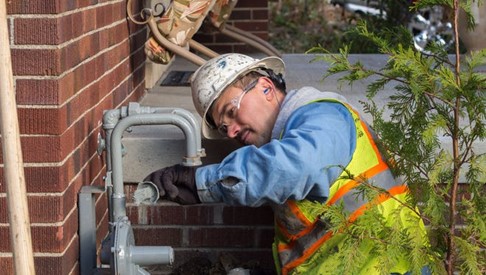Every homeowner knows the hassle of facing plumbing problems. But imagine if you could predict and prevent them before they become nightmares? Visit Proflush, your trusted companion in preventive plumbing measures. Here’s a look at how you can avoid those pesky plumbing issues and ensure the smooth functioning of your system.
Why Preventive Plumbing?
Preventive plumbing is not just about fixing problems; it’s about stopping them before they start. Like the saying goes, “A stitch in time saves nine”. Here’s why you should consider preventive measures:
- Save Money: Regular maintenance can prevent major breakdowns. In the long run, you’re saving a lot.
- Peace of Mind: Nothing beats the comfort of knowing your plumbing is in top-notch condition.
- Increase Lifespan: Your plumbing system will last longer if it’s well-maintained.
Best Preventive Measures
- Regular Inspections: Book a routine check with Proflush. It’s like a health checkup for your plumbing.
- Clear Drains: Regularly clear out drains to prevent blockages. This guide by the Australian Government offers insights on maintaining clear drains.
- Check for Leaks: Tiny leaks can lead to major problems. Check taps, showers, and toilets regularly.
If you’re unsure how, the Australian Government’s water efficiency guide can offer some insights.
- Install Strainers: These prevent large particles from going down the drain. They’re a simple, yet effective solution.
- Know Your Valves: Learn about the main shut-off valve. In emergencies, turning this off can prevent major water damage.
Recognise the Warning Signs
If you come across any unusual signs like reduced water pressure, gurgling sounds, or even unexpected increases in your water bill, it’s high time to consult the experts at Proflush.
The Lifeline of Your Home: Your Plumbing System
Often, we underestimate the significance of our home’s plumbing system. It’s the lifeline that ensures clean water enters our homes and waste exits safely. Ignoring this system or failing to maintain it can lead to undesirable consequences. Let’s dive a bit deeper into the value of preventive plumbing and its long-term benefits.
Understanding the Plumbing System
The first step to taking care of any system is to understand its components and functions. Your home’s plumbing consists of two main subsystems:
- Fresh Water Inflow: This system ensures fresh water is pumped into your home when you turn on a tap, shower, or appliance. It’s under pressure to make sure water reaches every corner of your home, from the ground floor to the upper levels.
- Waste Water Outflow: After the fresh water is used, it needs to be safely directed out of your house. This subsystem ensures waste water and sewage are directed to the community sewers or your home’s septic system.
Prolonging the Life of Your Plumbing System
Over time, without proper maintenance, your plumbing system can degrade. Here are some steps to prolong its life:
- Water Pressure Regulation: High water pressure might feel great in a shower, but it can strain your pipes. Ensure that the water pressure in your house is within safe limits. Devices like pressure reducers can help.
- Softening Hard Water: Hard water contains minerals that can deposit and clog your pipes over time. If your area has hard water, consider installing a water softener.
- Avoid Chemical Drain Cleaners: While they might seem like a quick fix, chemical drain cleaners can corrode your pipes. Instead, opt for natural solutions or mechanical methods, such as plunging.
- Insulate Pipes: This is particularly important for homes in cooler regions. Insulating pipes can prevent them from freezing in winter, reducing the risk of bursts. By insulating them, especially those in unheated areas, you reduce the risk. Check the Energy Efficiency Guidelines for best practices.
Tackling the Unseen: Hidden Plumbing Issues
Plumbing isn’t just about the visible pipes and taps; a significant portion of the system runs behind walls and underground. Hidden leaks or issues can go unnoticed for a long time, leading to significant problems like mould growth or structural damage. Here’s how you can tackle these unseen challenges:
- Infrared Cameras: Proflush’s professional services utilise state-of-the-art infrared cameras to detect hidden leaks. It’s non-invasive and highly effective.
- Routine Moisture Checks: Regularly checking areas around appliances and walls for unexplained moisture can give early indications of hidden leaks.
- Listen for Dripping: Sometimes, you can hear a leak before you see it. Periodic silence in the house to listen for any dripping or unusual sounds can be helpful.
Embracing Technology: Smart Plumbing Systems
With advances in technology, the realm of plumbing has also seen innovation. Smart plumbing systems can help in early detection of issues:
- Water Leak Detectors: These are smart devices that can be placed in vulnerable areas. They’ll alert you if they detect moisture.
- Smart Water Meters: Not only do they monitor your water usage for conservation purposes, but they can also detect irregularities indicating potential leaks.
- Digital Inspection Tools: With tools like endoscopic cameras, Proflush technicians can inspect hard-to-reach places without the need for invasive methods. Check out our testimonials.
Educate and Empower: Know Your Home
Finally, while Proflush professionals are always here to assist, as a homeowner, it’s empowering to have basic knowledge of your plumbing system. Knowing where the main shut-off valve is or understanding the basic layout of your pipes can be invaluable during emergencies.
Conclusion
Plumbing is like the vascular system of your home. By adopting preventive measures, you ensure its health and longevity. If you ever need professional help, remember Proflush is just a call away. Don’t wait for a plumbing disaster. Need expert advice or a comprehensive check? Get in touch with Proflush today.
Frequently Asked Questions:
Preventive plumbing involves measures taken to avoid potential plumbing issues, rather than dealing with them after they occur.
It’s a good idea to have an inspection annually. However, if you suspect issues, don’t wait.
Absolutely. Small leaks can lead to bigger issues, including structural damage and mould growth.
Slow drainage, bad odours, and water backflow are common signs. Learn more at our blog.
While some basic measures can be DIY, it’s best to consult professionals like Proflush for comprehensive checks.
A sudden spike often indicates a leak. This article from the Australian Government gives more insights.
Apart from basic tools, experts use cameras, detectors, and specialised equipment.




